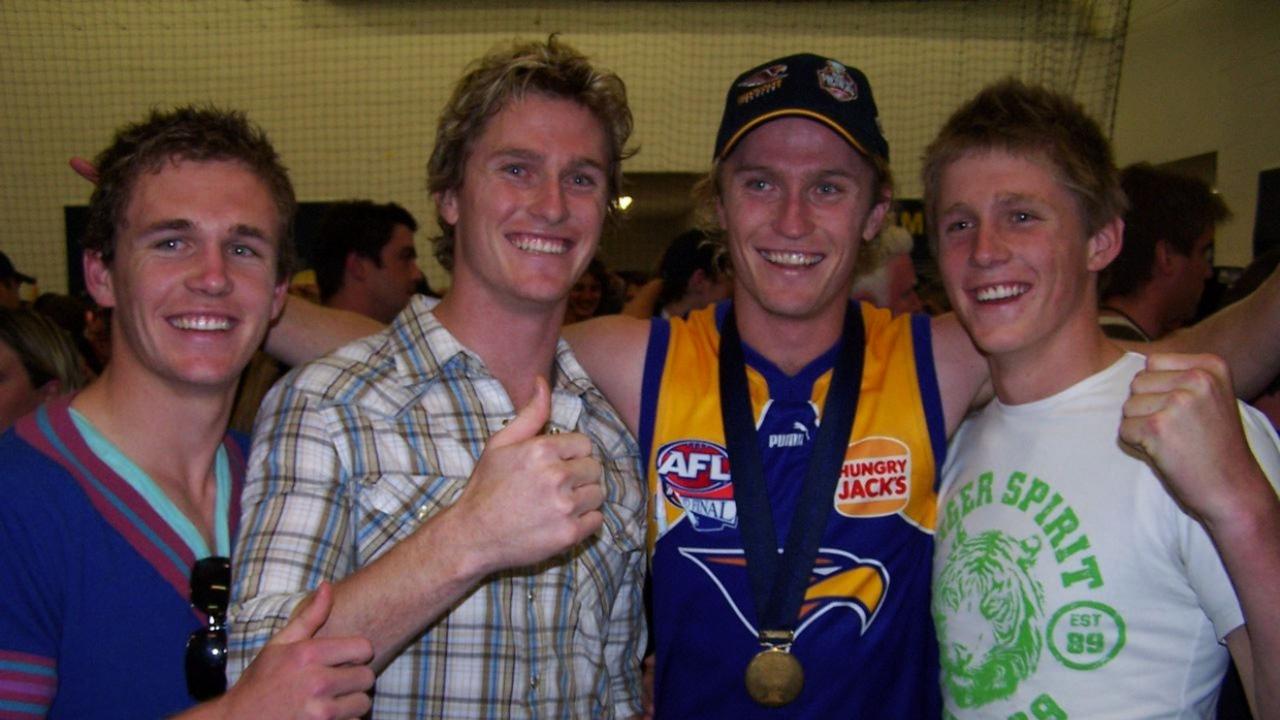Winning the first quarter will be more vital in 2020, writes David King
Expect the footy to be fast and furious when the game resumes under a shorter format this week. David King reveals the key to success in a 17-round season.
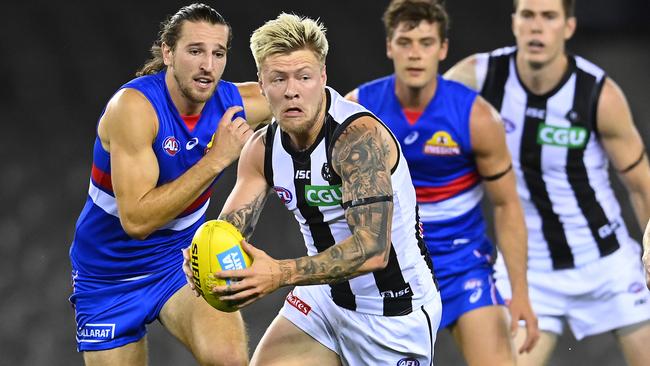
Expert Opinion
Don't miss out on the headlines from Expert Opinion. Followed categories will be added to My News.
Win the first quarter and win 68 per cent of AFL games. That’s been the case since 2010 but expect that percentage to rise in the shortened game-time of season 2020.
All coaching panels are trying to identify the facets that impact a fast start but with differing answers for their playing personnel and their coaching ideals, but make no mistake, expect frantic football early in games.
The first 15 minutes of football in all games will be electric.
Shorter-than-usual quarters of 16 minutes each, while maintaining 90 interchange rotations for the match, open new doors for coaches.
Some of those facets include basic components such as rotations, not just the number used but who they’re spent on. There’s a consensus that “power players” will assume control over the grinding one-speed, all-day footballers.
The Jordan De Goey, Christian Petracca and Cam Rayner-types, who previously couldn’t sustain major midfield minutes, could have two short midfield bursts per term as opposed to one which was the previous norm.
Get your footy fix on KAYO ahead of live matches returning soon. Watch classic battles from the 60s to today, docos, news and more. New to Kayo? Get your 14-day free trial & start streaming instantly >
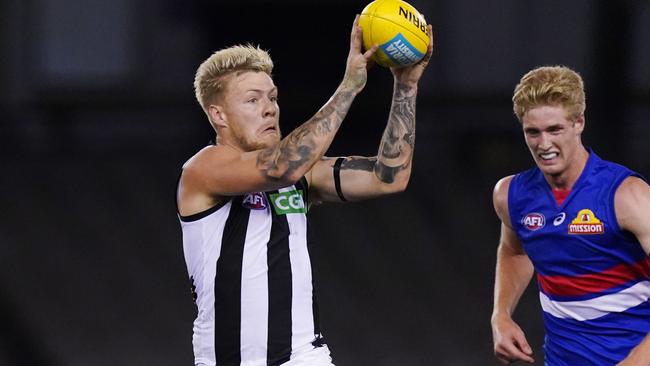
The Kangaroos had only 50 rotations in Round 1 because of injuries, but the player feedback was strongly in favour of a settled unit.
Some coaches have concluded that the best talent should remain on field for longer, potentially in other positions rather than the bench.
Less game time logically means fewer kilometres ran in total by players, but it’s uncertain whether they will cover more metres per minute.
The power running of the high-rotation Mick Malthouse coaching days could return as the shorter game dictates the need for impact over attrition.
We may see the fastest AFL football we’ve witnessed for years.
Ruck or run?
Most teams cannot carry a second ruckman who doesn’t perform an effective secondary function for the team.
What is the worth of an effective hitout? Does your coach believe it’s more valuable than the extra running type on the bench? Or will the Shaun Grigg-styled second ruckman come back into vogue?
SUBSCRIBE TO THE SACKED PODCAST HERE
Will Nic Naitanui continue to play 60 per cent game-time, which was approximately 70 minutes per match, or play the same minutes, which would mean a greater percentage of a shorter game?
The Todd Goldstein “ruck all day” types become significant commodities this season, an attribute that will be magnified come finals time.
Winning centre-bounce clearances is clearly where it all starts. Expect coaches to identify which combinations bring their team the best success.
Port Adelaide was the best at winning centre-bounce clearances, but the West Coast outscored its opponents by 26 goals last year from this source.
Irrespective of quality or quantity, the territory advantage is vital in the shorter-game format.
The centre-bounce crew is all important. Stef Martin, Dayne Zorko, Lachie Neale and Jarryd Lyon were the best combination of 2019, but don’t expect to see Rowan Marshall, Seb Ross, Luke Dunstan and Jack Steele as St Kilda’s preferred centre-bounce quartet on last season’s data, hence the acquisition of Paddy Ryder.
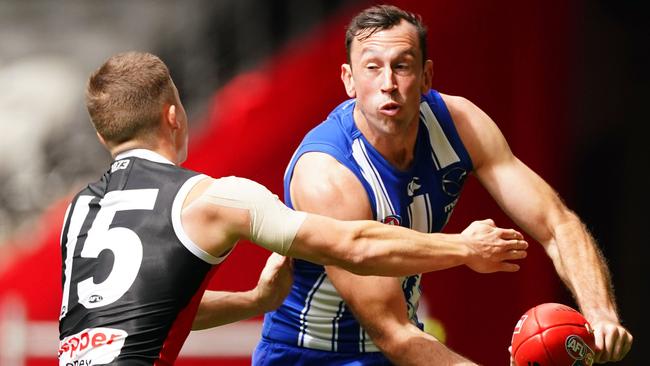
There’s an element of randomness to centre-bounce clearances but across the season the returns, or lack thereof, don’t lie.
Each team’s best quartet must be used to ensure a fast start and create early momentum.
As always, the simple functions such as goal kicking accuracy will have a major role in dictating the fortunes of all teams.
Ensuring that your periods of dominance are reflected on the scoreboard in these shortened games will be critical.
Brett Ratten and the Saints let theirs slip in Round 1 and that valuable four premiership points frittered away will haunt them later in the season.
In-game coaching will need to assess trends or patterns quicker than in the past given the shorter quarters. The fact there’s fewer coaching staff to identify these issues or opportunities will put extra stress on senior coaches.
Will we see assistant coaches omitted from the coaching team through poor in-game coaching form?
Out Darren Crocker … in Jared Rivers?
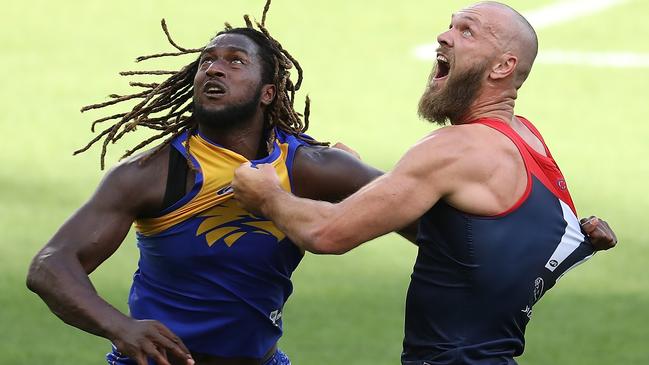
The different format of the week at clubland regarding group meetings, changeroom layouts and basic player interaction has altered drastically under the imposing COVID-19 restrictions. They are challenges that will create issues regarding basic organisation and adherence to in-game structures and player roles.
It’s unavoidable and sure to bring a level of frustration to senior coaches, particularly under gameday pressure.
READ MORE:
How Gillon McLachlan saved footy from coronavirus pandemic while working 18-hour days
Sacked: Gary Ayres lifts lid on his final days at Hawthorn, Geelong and Adelaide
The Score: Brendan Fevola’s attempted prank falls flat on unsuspecting Carlton membership officer
The value of four premiership points has skyrocketed. It’ll be a long way back from a 0-2 start to the season.
Which club will prevail? Who as handled a crazy season the best? All 18 teams are on the blocks with the starter’s gun about to be fired for the resumption of the 2020 AFL season.
The furious first quarter of football holds the key to success in 2020. The magic number over the last decade was win first quarter, win 68 per cent of games.
It’s a simple but consistent message at all clubs.
Shop early.
Originally published as Winning the first quarter will be more vital in 2020, writes David King


